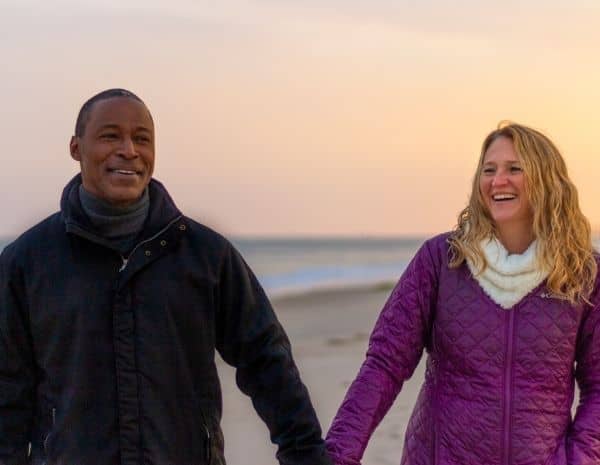When Aaron Finney began dating the woman of his dreams nearly 30 years ago, he barely recognized the contrast in the colors of their skin.
“The first thing that I noticed was her beauty, bright smile, and lively personality,†he recalled after almost three decades with his wife, Kellie. Although their parents were happy and supportive of their marriage, not everyone in their community agreed. Soon the couple, a Black man married to a white woman, began to observe public looks of disdain and sometimes received cold responses when greeting others. “There have also been some disparaging racial remarks,†said Aaron.
According to the Pew Research Center, one in five new marriages is now interracial. While statistics suggest that interracial marriages in America have gained greater acceptance, not all couples have that experience. Still, they have found ways to cope.
Shared religious faith along with a community of fellow believers have been invaluable in navigating the cultural complexities.
Aaron and Kellie, now of Ocean Pines, grew up worshipping and associating with a diverse group of people in their congregation of Jehovah’s Witnesses. Neither their parents nor their fellow congregants were surprised when they began to date and later married.
The experience was similar for Jared and Me Hee Wise of Wilmington, who first met and became friends while attending the same congregation in Penny Hill. Although they’ve grown accustomed to the stares brought on from a white man being married to a Korean woman, the couple admits that cultural differences can at times present a challenge.
“I came from a family that expressed love more verbally and physically,†said Jared. “And we were taught to communicate openly regarding issues and emotions.†However, Me Hee explained that in her culture, the opposite is more common. “My family is more reserved in showing emotions and is very direct in conversation.â€
Yet, despite their different backgrounds, the couple agree that it felt natural to date and progress to marriage because of their shared faith. “We’re taught to love one another regardless of background, race or culture,†said Jared, who related how supportive and excited his fellow congregants were when the two started dating.
Now, they’re endeavoring to raise their daughter with the same values. “We’re teaching Ella not to judge people because of their background and to not view ourselves as superior to anyone else,†said Me Hee. “We’ve learned that despite any cultural differences, we can be successful by applying Bible principles.â€
According to a study conducted by the University of Utah, married couples who had shared values reported higher levels of marital happiness and individual well-being than those who did not.
The Finneys agree that love, loyalty and faith are among the shared values on which they base their marriage and family life. They credit regular Bible reading and prayer, along with the reminders they receive at congregation meetings, with helping them to unitedly raise their two children, Alana (23) and Sahara (17), to develop the same principles.
“We encouraged our daughters to appreciate all cultures and backgrounds and to develop friendships with people of various ages and races,†said Kellie.
More information on the activities of Jehovah’s Witnesses, including resources for happy family life, can be found on their official website,


